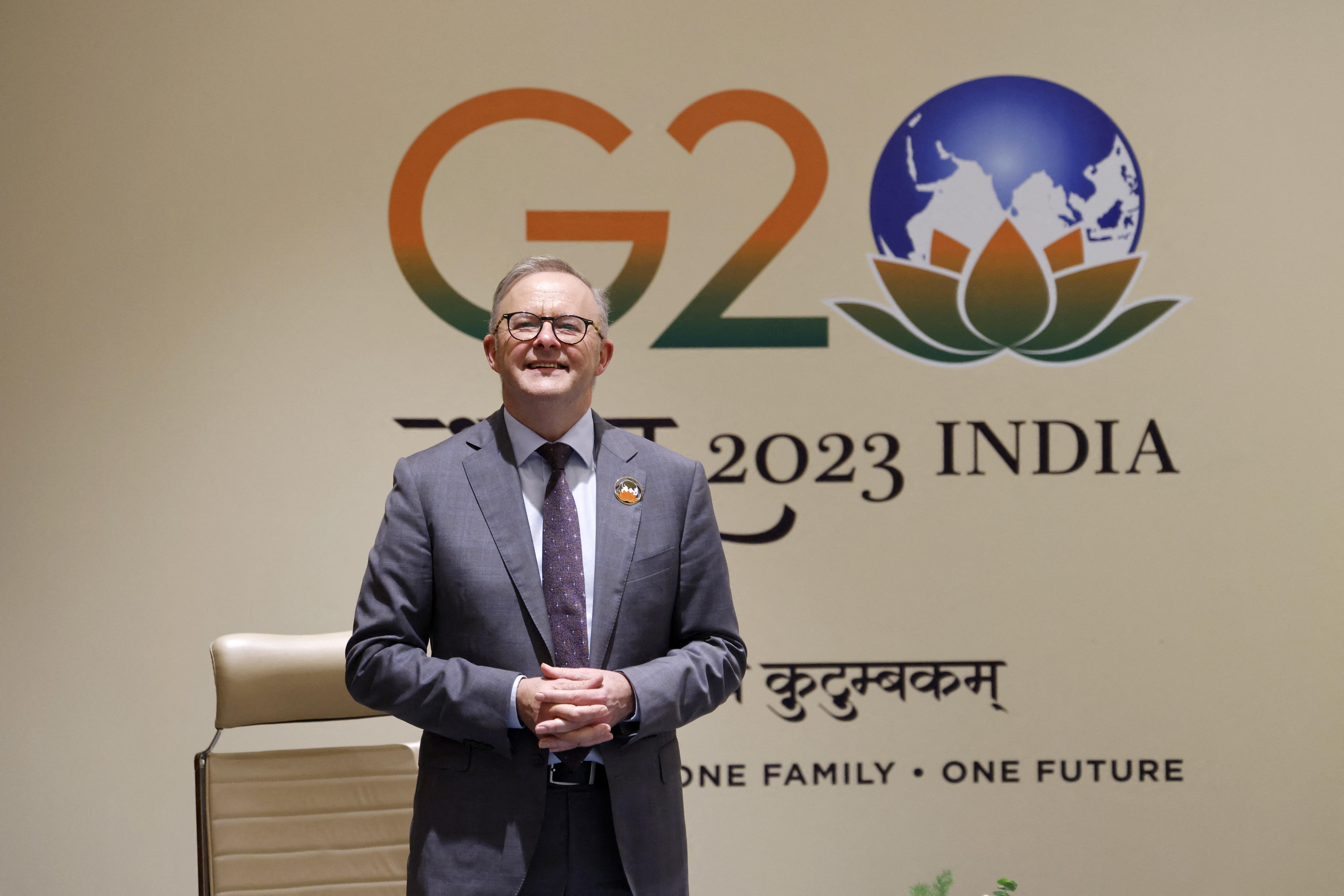 Australia's Prime Minister Anthony Albanese waits before his bilateral meeting with France's President Emmanuel Macron (not pictured) during the G20 Leaders' Summit at the Bharat Mandapam in New Delhi on September 9, 2023. (PHOTO / AFP)
Australia's Prime Minister Anthony Albanese waits before his bilateral meeting with France's President Emmanuel Macron (not pictured) during the G20 Leaders' Summit at the Bharat Mandapam in New Delhi on September 9, 2023. (PHOTO / AFP)
SYDNEY - Australian Prime Minister Anthony Albanese said on Saturday that prospects of inking a free trade agreement with the European Union were better this year than in 2024, after talks stalled in July.
Discussions between Australia and the 450-million-person bloc hit a roadblock mid-year, partly over greater market access for Australian farm products like beef.
Australia wants more access to EU markets for its beef, lamb, dairy products and wines, much of which are subject to tariffs and quotas
Speaking in New Dehli, India late on Saturday on the sidelines of a Group of 20 (G20) summit, Albanese said he had raised the issue with German Chancellor Olaf Scholz at the event and planned to raise it with French President Emmanuel Macron.
READ MORE: Australia, Philippines upgrade ties to strategic partnership
"I would like to see the Australia EU Free Trade Agreement settled as soon as possible," Albanese said, according to an official press conference transcript.
"It's quite clear with the timetables that are there, that the prospects of that being done are much greater this year than next year, because it does run into elections."
READ MORE: Australia aims for steady ties, premier told
The EU and Australia opened talks on a trade deal in 2018 but differences remain particularly over the degree to which the EU will open its markets to some Australian farm products.
READ MORE: Australia issues new trade strategy with Southeast Asia
Australia wants more access to EU markets for its beef, lamb, dairy products and wines, much of which are subject to tariffs and quotas.
Last month, Australian Trade Minister Don Farrell told Reuters that a deal would simplify European investment in Australia's growing critical minerals sector.


